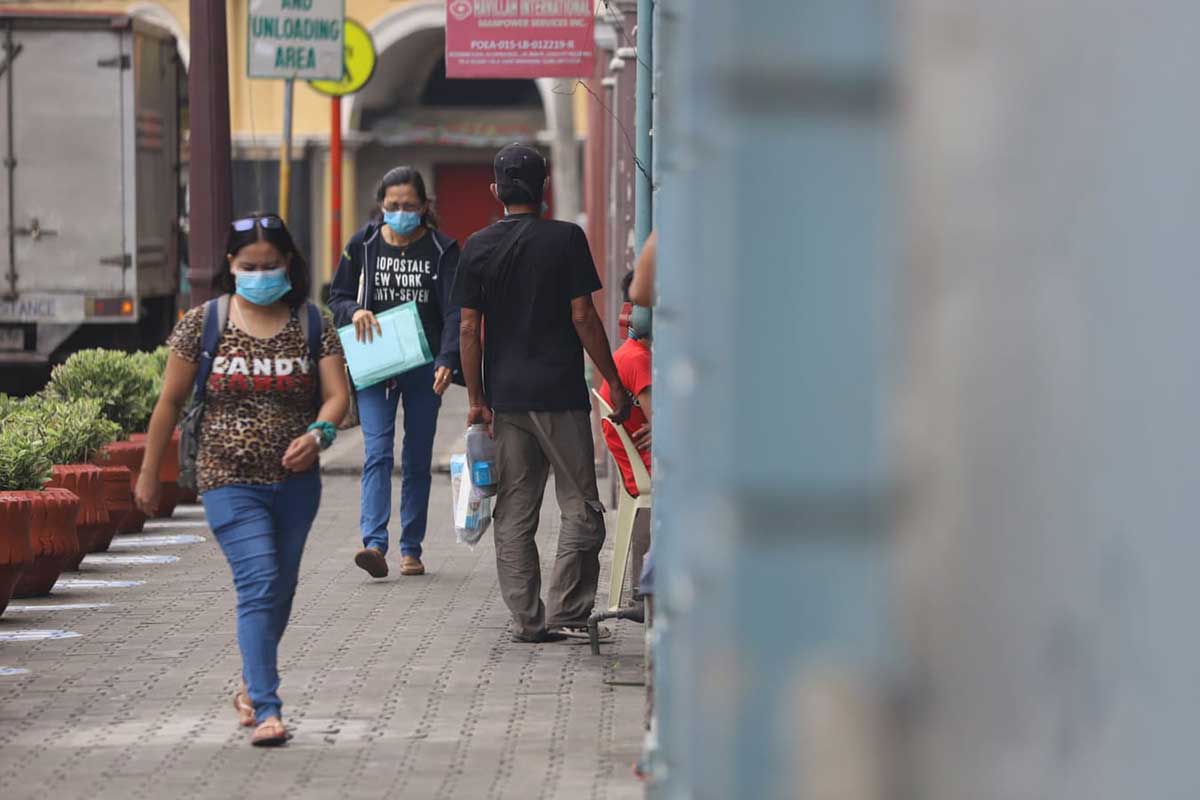
Mass gatherings in Iloilo City are “highly discouraged amid the consistent spike in Covid-19 cases in the metro.
The Iloilo City Covid-19 Team made the appeal to the public as cases continue to rise. Instead, the City Covid-19 Team urged Ilonggos to hold mass gatherings in outdoor venues.
“Kon pwede i-limit ang mass gatherings especially in confined and closed places. Ang aton mga mass gatherings didto na lang kita sa mga al fresco areas or outdoor setting,” Dr. Annabelle Tang head of the City Health Office (CHO) said in a press conference on Tuesday, July 12, 2022.
Tang also noted that some Ilonggos are no longer compliant with the health protocols amid the shift to the new normal. Hence, she reminded the public strictly observe the health protocols such as proper wearing of face masks, washing of hands, and physical distancing.
“Nagbalik na kita sa new normal, everybody wants to go out. Kalabanan subong wala na gaface mask like sa mga jeep. We have to remember airborne ang virus. So even if naka-booster or nakapabakuna na, compliance sa gihapon,” she lamented.
Aside from this, the City Covid-19 Team also appealed to the parents to limit bringing their children to the malls due to the rise of Covid-19 cases.
“Wala man naton ginaregulate ang hulag sang tawo, but if pwede sa aton mga parents ilimit naton ang paglagaw kaupod ang aton kabataan sa malls. Ang usual practice abi wala na gasuksok face mask ang mga kabataan kon galagaw. So, we have to remind our parents nga kon pwede malikawan, indi lang anay maglagaw upod ang kabataan,” according to Dr. Roland Jay Fortuna, chairman of the Iloilo City Covid-19 Team.
The City Covid-19 Team also discourages the holding of seminars with huge attendees and the practice of eating together inside offices.
Based on the data from the CHO, Iloilo City logged 411 cases from July 6 to July 12 with an average daily rate of 59 cases. This is 71% higher compared to the 241 cases recorded in the previous week.
From July 1 to July 12, the city recorded 585 new Covid-19 cases.
Meanwhile, the World Health Organization reminded the public that Covid is still very much around.
Fresh waves of COVID infections show the pandemic is “nowhere near over”, the World Health Organization’s chief warned Tuesday, voicing concern the virus is “running freely”.
Tedros Adhanom Ghebreyesus said he was worried that case numbers were continuing to rise, putting further pressure on stretched health systems and workers.
“New waves of the virus demonstrate again that COVID-19 is nowhere near over,” he told a news conference, adding: “As the virus pushes at us, we must push back.”
“The virus is running freely and countries are not effectively managing the disease burden based on their capacity, in terms of both hospitalization for acute cases and the expanding number of people with post-COVID condition, often referred to as Long COVID,” he said.
“As COVID-19 transmission and hospitalizations rise, governments must also deploy tried and tested measures like masking, improved ventilation and test and treat protocols,” Tedros insisted.
The WHO’s emergency committee on COVID-19 met on Friday via video-conference and determined the pandemic remains a Public Health Emergency of International Concern, the highest alarm the WHO can sound.
WHO emergencies director Michael Ryan told the meeting global COVID cases reported to the WHO increased by 30 percent in the last two weeks, largely driven by omicron sub-variants BA.4, BA.5 and and the lifting of public health and social measures.
Ryan said recent changes in testing policies were hindering the detection of cases and the monitoring of virus evolution.
The committee stressed the need to reduce transmission of the virus as the implications of a pandemic caused by a new respiratory virus would not be fully understood, the WHO said in a statement Monday.
The group voiced concern over steep reductions in testing, resulting in reduced surveillance and genomic sequencing.
“This impedes assessments of currently circulating and emerging variants of the virus,” the WHO said, feeding the inability to interpret trends in transmission.
The committee said the trajectory of virus evolution and the characteristics of emerging variants remained “uncertain and unpredictable”, with the absence of measures to reduce transmission increasing the likelihood of “new, fitter variants emerging, with different degrees of virulence, transmissibility, and immune escape potential”. (DG/With a report from Agence France-Presse)






















